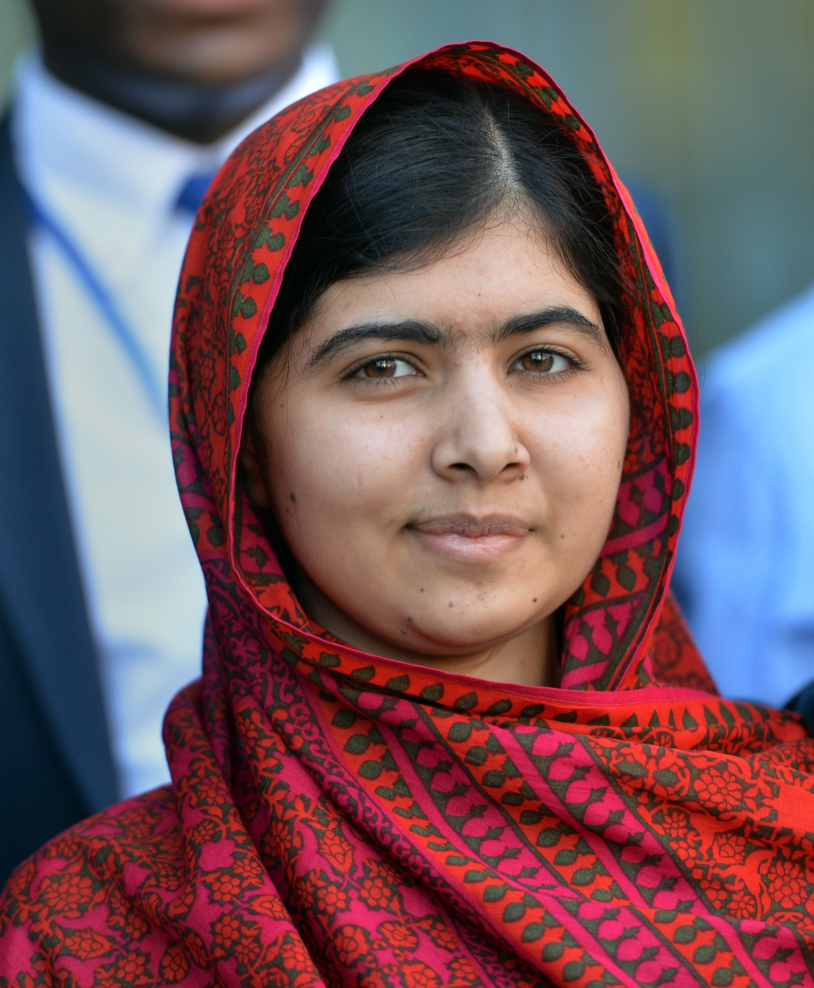On October 9th, 2012, one gunman walked onto a school bus full of kids demanding to know the identity of one girl. For months this girl, and most of her friends, knew she had a death threat put against her by the Taliban, but this did not stop the other children on the bus from looked at her, giving her location away to the gunman. Twenty seconds later the gunman shot her in the side of the head.
This girl is Malala Yousafzai and at fourteen years old she almost had her life taken away by a terrorist group because she was advocating for female education. After barely surviving the attack, she was taken from Mingora, Pakistan, her hometown, to Birmingham, England, for the treatment that would eventually save her life. Now, almost three years later, Malala has a Nobel Peace Prize and is on the forefront of women’s rights in the middle east.

Mingora, Pakistan had been a tourist attraction known for it’s summer festivals before the taliban started to take control of the country. Her family had roots in the town, since her father, Ziauddin Yousafzai had founded the school in the area. Malala attended that school up until the day she was shot. As the Taliban started to gain more power, they began attacking girls’ schools. This led Malala to giver her first speech. It was given in September of 2008,when she was only 11 years old and it was titled, “How dare the Taliban take away my basic right to education?” This was only the tip of the iceberg for this brave girl.
In 2009, she began blogging for the BBC about the Taliban and living under their threats to deny females education. She used the pen name Gul Makai do avoid detection, but was given away in December of that year. Even though she did not want this, it helped her grow her platform and spread her message. She continued to speak out and fight for what she believed it. This led her to be nominated for the International Children’s Peace Prize in 2011, be awarded the Pakistan National Youth Peace Prize, but also a death threat from the Taliban. A group of grown terrorists had become threatened by a fourteen year old girl.
After the shooting on the bus, Malala managed to survive and continue her fight for education. In 2013 she was nominated for the Nobel Peace Prize, but did not win it until the next year when she was nominated again. At seventeen, she became the youngest girl to win the award. In October of 2013, she also released an autobiography called, I Am Malala: The Girl Who Stood Up for Education and Was Shot by the Taliban. She wrote about her life’s story and explained the importance of education to women in our changing world.
Malala has become the voice of thousands. She speaks for every girl who has lost her right to an education and, subsequently, a future. She is fearless and strong and will stop at nothing to achieve what she deserves. It is people like Malala Yousafzai that keeps the feminist movement alive.
*Malala's powerful acceptance speech for the 2014 Nobel Peace Prize*
Girls becoming equally human and not oppressed. It takes a lot, we are lucky.
ReplyDelete